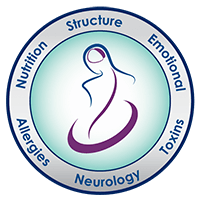Thyroid disorders can affect the body in different ways from digestion to hormone function. Thyroid function can be restored naturally by studying the immune system, brain function, blood sugar levels and other factors within the body through testing and health assessments.
Let’s start off by explaining what the thyroid is, where it’s located, and what its function is.
Dr. Greg Olsen: The thyroid gland is a small gland sitting in the front of the neck. It is butterfly-shaped and its main job is producing two hormones called T3 and T4. The reason those are important is because they, especially T3, are the spark plugs for energy production in the body. They help with the rate of energy production, regulating body temperature, and also have a very important role in brain function with regard to mood and emotions.
What are some signs and symptoms that someone might have a problem with their thyroid?
Dr. Greg Olsen: There are a number of things that can happen with the thyroid. First thing we can talk about is what is called hypothyroid, and that is a low-functioning thyroid. Common signs with that are fatigue, weight gain, morning headaches that wear off during the course of the day, depression, constipation, very sensitive to cold, cold hands, cold feet, even cold nose or ears. You can also get muscle cramps at rest, itchy and dry skin, and very commonly the outer third of the eyebrow goes away.
What are the steps involved in diagnosing a thyroid disorder and what are the names of the different disorders?
Dr. Greg Olsen: Diagnosing thyroid disorders is a little more complicated than just doing what is called a TSH test. There are different types of things that we look for. Sometimes it is a hypothyroid or hyperthyroid, and then there is the worst-case scenario with times when it could be thyroid cancer. But the majority of the time we’re looking at a hypothyroid, or low thyroid functioning.
Finding that out is really looking at a complete health history. There is a unique questionnaire called the metabolic assessment form that covers looking at every system in the body to tell where it might be malfunctioning at, everything from digestion to hormone function. That is a really key part of the history.
Laboratory-wise, we go and look at a complete thyroid assessment. That’s looking at thyroid-stimulating hormone, the hormones T3 and T4 and what is called free and total levels of those. There is a measurement of what is called reverse T3, the free thyroxine index, and a couple of the most important ones, the thyroid antibodies, the thyroglobulin antibody and thyroperoxidase antibody.
Many people take medication for thyroid disorders. Why is this not the most effective treatment?
Dr. Greg Olsen: Taking thyroid hormone medication oftentimes isn’t effective because most people don’t realize that there are six key patterns of thyroid dysfunction or hypothyroid patterns, and there is only one of those that is a primary hypothyroid that requires or is appropriate to prescribe thyroid medication. The other five are not ideal for having the thyroid medication.
Really what that comes down to is that thyroid hormone replacement many times does not address the cause and so for many who are not primary hypothyroid, the relief is only short-lived or partial and they’re still wondering, “Why do I feel terrible, but I’m still taking thyroid medication and my labs might be normal too?”
How can thyroid health be restored naturally?
Dr. Greg Olsen: Really, the key to restoring thyroid health naturally is looking at what we call thyroid hormone metabolism. That is what happens with the hormones after they’re produced. That’s really looking at finding the cause or causes of what’s happening with that. That comes into looking at things like how the immune system is working, including looking at factors that can affect or cause autoimmunity, or when the body is attacking itself or the thyroid in this situation.
There can be issues related to how blood sugar is, gastrointestinal or GI issues, factors from the adrenals, and a really unique one is many times patients present with thyroid-type symptoms and they have actual brain dysfunction. There’s a real important connection with seeing how the brain functions in the hypothyroid situations. Anemia is also a real key factor to look at. One that most people don’t realize affects thyroid function as well is what we call chronic stress and cortisol levels.
Learn More
To speak with Dr. Greg Olsen, visit www.askdrolsen.com or call (949) 859-5192 to schedule an appointment.
Click here to receive more information & to schedule your consultation.

